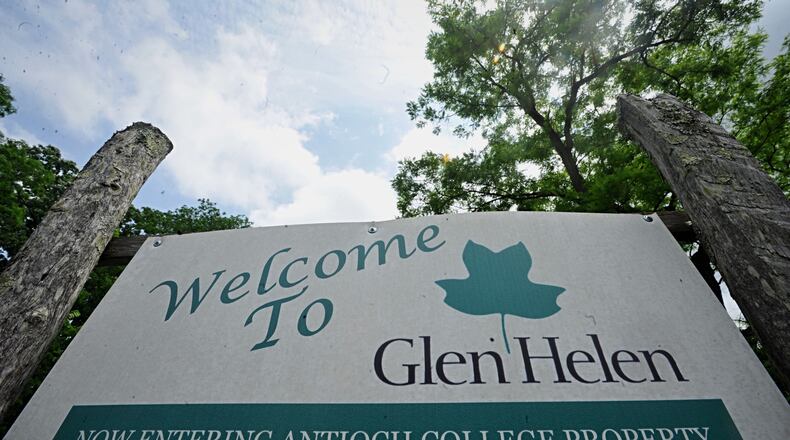Bethany Gray, GHA President, said the goal of the association is to open the Glen to the public as soon as possible.
Initial report: Fate of Glen Helen Nature Preserve under discussion
“The Glen Helen Association is well positioned to take full responsibility for the operations of the Glen,” Gray said. “The GHA has partnered with the College for decades, not only to help preserve this special place, but to expand public use. We are excited about this next step.”
Antioch will receive approximately $2.5 million over a 10-year period as partial reimbursement for decades of investment in the Glen, according a press release. The initial payment by the GHA will be $500,000 as a downpayment, then an annual payment of $50,000 and the remaining balance will be due on the 10th year.
Once the agreement is finalized, the GHA will assume ownership of the Glen and take on management and operations.
Although not finalized, part of the principle agreement is the ability of the GHA to reopen the Glen to the public when it feels it is ready. A finalized agreement is expected to be reached before the end of summer. The nature preserve has more than 20 miles of walking trails, a raptor center and an outdoor education center.
Located immediately east of downtown Yellow Springs, the Glen has been closed to visitors due to COVID-19, including its trails and the Glen Helen Raptor Center.
Community steps up to raise funds for future of Glen Helen
“It (coronavirus) absolutely clarified the sense of urgency,” Antioch College President Tom Manley said. “In these times of heightened crisis, we also are able to see pathways and opportunities that weren’t as obvious or as compelling as they were before. All of this comes together as something that produces a good result.”
“For over a year, Antioch College has been quietly exploring with the board of the Glen Helen Association a new structure under which to operate this treasured regional resource,” read a statement on the college’s website. “The GHA is a separate nonprofit organization with which the College shares the common goal of supporting and protecting Glen Helen and access to it.”
The Glen was gifted to the college by alumnus Hugh Taylor Birch in 1929 as a memorial to his daughter Helen Birch Bartlett. Since that time, the Glen has served as an environmental research site that Antioch College made available to the public for programming and recreational use.
“The Glen has evolved from being an extension of our campus, as Birch intended, into an invaluable natural and community resource, and popular tourist destination,” Manley said. “The College has taken numerous steps to expand and protect the Glen, culminating in the conservation easements, which ensure that the land can never be developed. It is now time to take the next right step in maintaining public accessibility by putting the Glen in community hands.”
In collaboration with the GHA, Antioch will maintain ownership of the Glen Helen Ecology Institute.
“The Glen will remain an important part of the Antioch experience for our students, offering invaluable space for recreation, research, and reflection, at our doorstep,” Manley said.
The transfer, Manley feels, will strengthen and clarify the purpose of the Glen as it is now in the hands of an organization that has only the Glen as its purpose.
“There are people who fell in love —not only with the Glen, but with other human beings in the Glen,” Manley said. “They wrote their best poetry there, they’ve went on life changing walks, they’ve gone when they’re in grief or to celebrate something stunningly wonderful in their lives. It’s a part of who we are.”
About the Author
